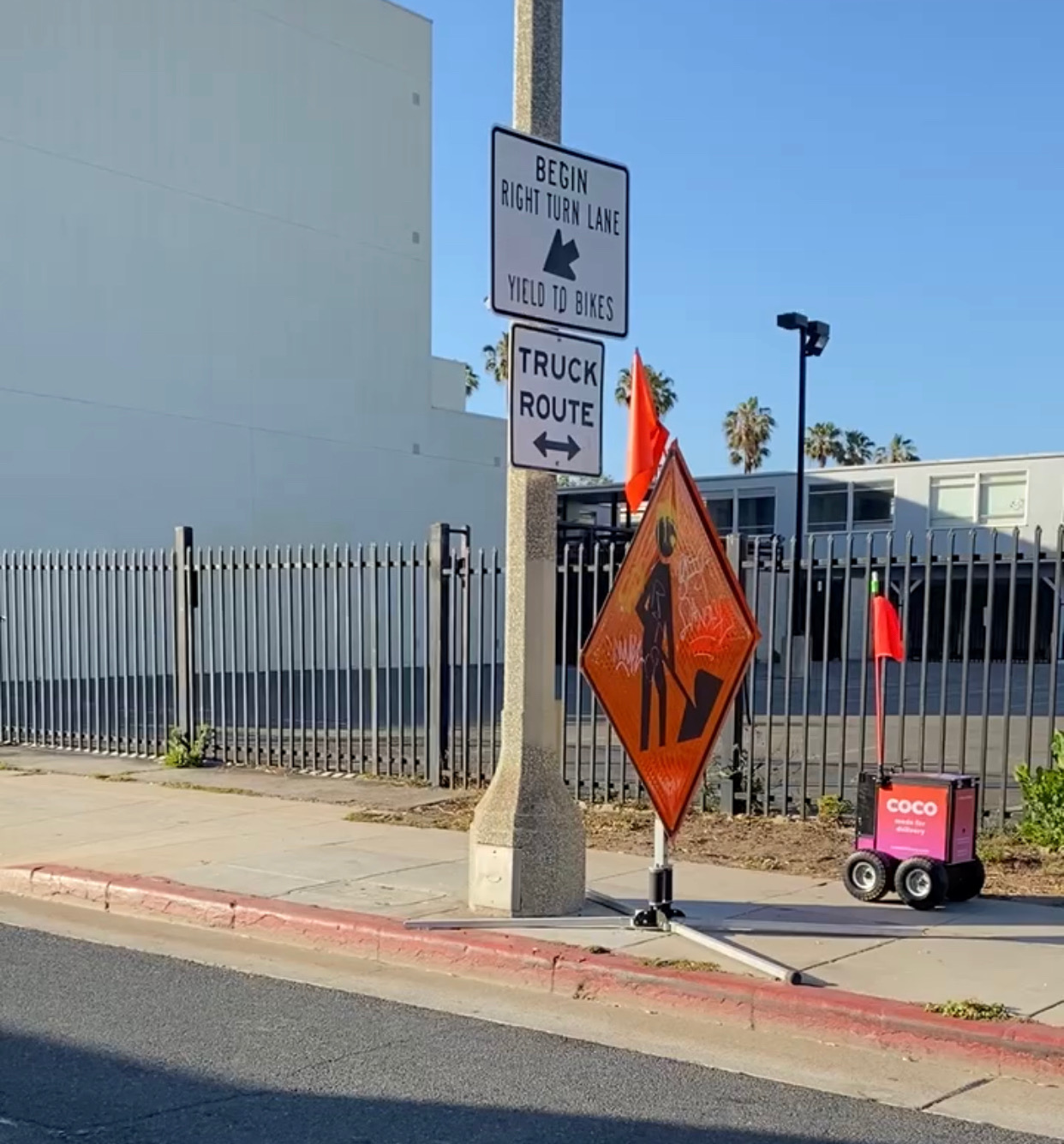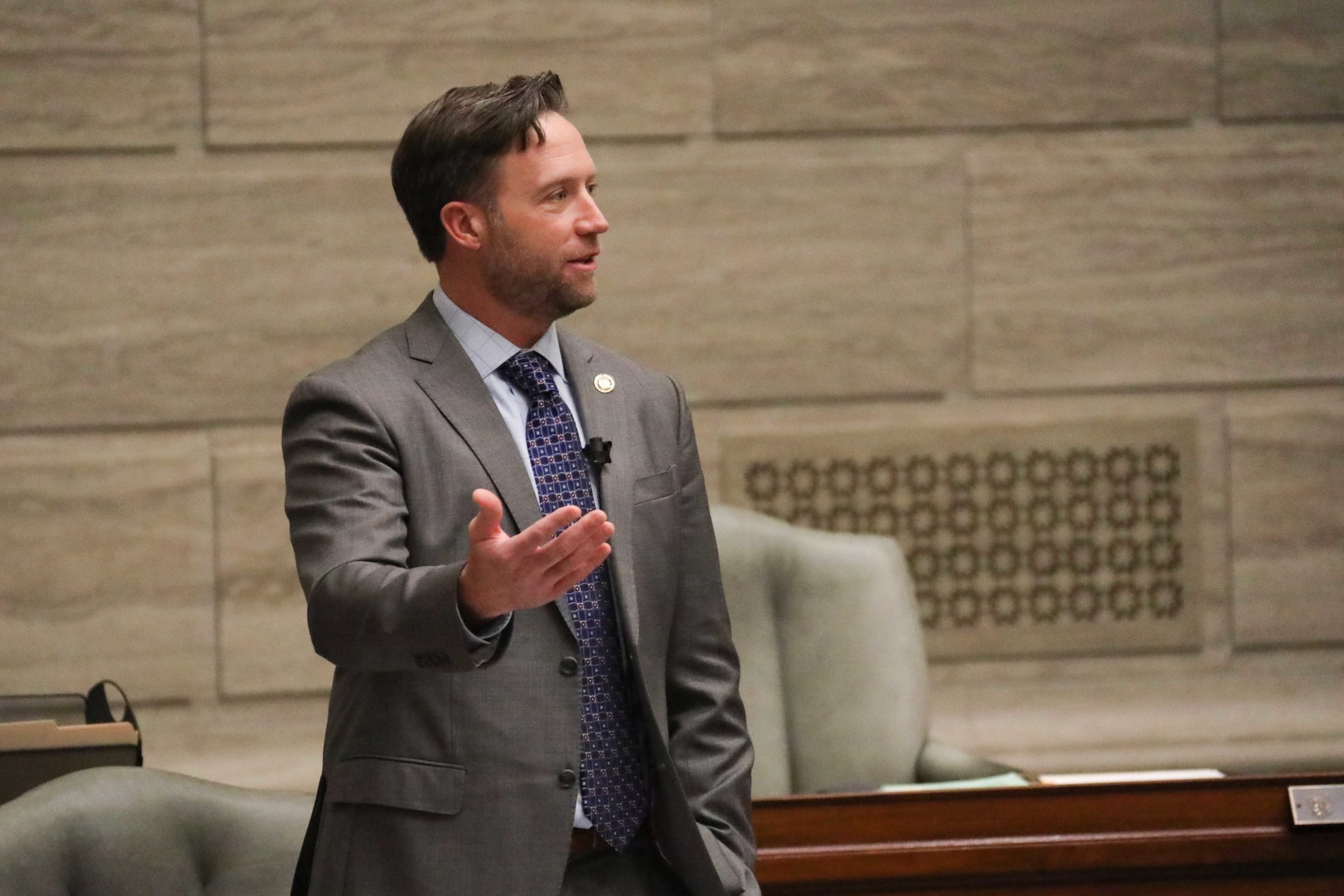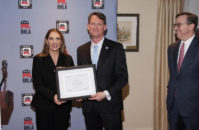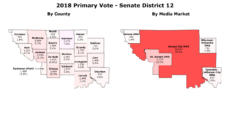JEFFERSON CITY, Mo. — Missouri communities could regulate the use of delivery robots under a bill passed by both chambers of the Missouri Legislature this session.
Sen. Lincoln Hough’s SB 176 enacts regulations on personal delivery devices (PDDs), prohibiting the devices from blocking public right-of-ways or unreasonably obstructing traffic. They would also be relegated to speeds under 10 miles per hour and required to maintain a $100,000 general liability insurance policy. Dubbed the “tiny robots” bill by legislators, it progressed through both chambers and onto the governor’s desk during the final weeks of session.
Hough said a common concern from municipalities and similar bills passed in a dozen other states prompted him to reach out to representatives from the delivery industry to gauge their interest in legislative action.
“It’s something I had seen a few articles about from around the country — a few states started the conversation,” Hough told The Missouri Times. “The legislation just sets some parameters for local municipalities to establish their own standards and regulations. A lot of times with new technology there’s this issue where, if it’s not explicitly stated in statute that communities can do something, they can be apprehensive about taking that next step.”
Other states with PDD laws on the books include Virginia, Oklahoma, Arizona, Pennsylvania, and California.

The bill includes other provisions related to transportation and commerce that were added as it rolled through the process: Another section included in the bill would require food delivery platforms to register with the Secretary of State’s Office and restrict them from using a brand’s likeness or trade name in a way that could be construed as a sponsorship of the restaurant without an agreement. Restaurants will be able to take legal action against services that violate the act.
Other measures cover the classification and regulation of electric bicycles and the sale and leasing fees charged by vehicle dealers, the latter of which saw pushback in the upper chamber. Under the language, car dealers would be able to charge higher administrative fees, raising the bar from under $200 to under $499.
While some applauded the effort to boost Missouri dealers that face a competitive disadvantage compared to other states, others opposed a provision requiring 10 percent of those fees to be earmarked to establish a new vehicle ID database. Hough said the current database had needed an upgrade for more than a decade.
“It’s somewhere in the $70 million range to do an entire statewide system — dealers don’t have to charge the full $499, they can charge whatever they want up to that amount,” he said. “We also put language in saying that after the system is in place and paid for, there will be a 1 percent ongoing collection for the maintenance of the system. That’s the most beneficial thing in my opinion in terms of the fee increase.”
Hough said the various components of the bill looked to the future of the state from a transportation and technology standpoint — one not run by autonomous robotic overlords, as his Senate colleagues often joked on the floor.
“This is one of the next things for our cities and the companies that are constantly delivering things to our front doors. There are even ads now about these devices delivering pizza to your house,” he said. “I think this could be a really cool thing if we can get this in place as a state, and we’ll see how it works.”

Cameron Gerber studied journalism at Lincoln University. Prior to Lincoln, he earned an associate’s degree from State Fair Community College. Cameron is a native of Eldon, Missouri.
Contact Cameron at cameron@themissouritimes.com.






















